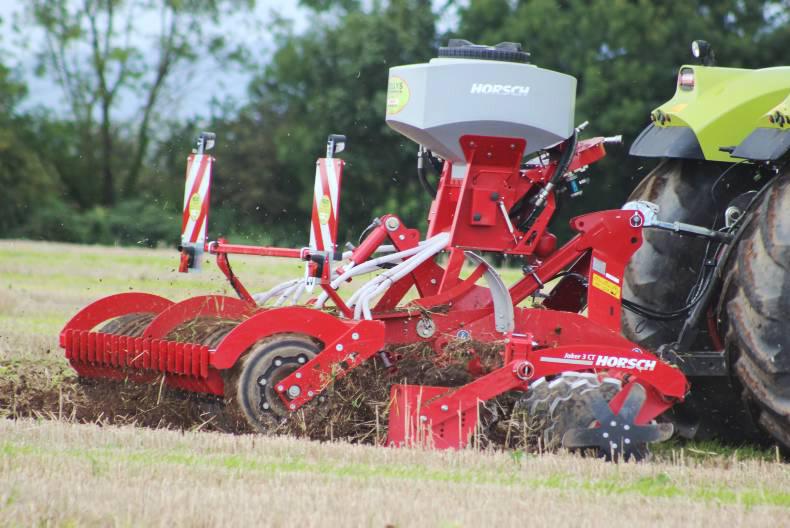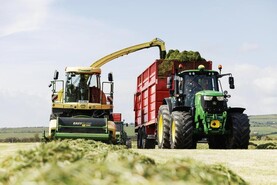Challenging harvest conditions: Broken weather is making winter barley harvesting awkward and straw baling even more difficult. A proportion of remaining barley crops are lodged or tossed and straw breakdown is a significant issue. Some of this is brackling, but there appears to be some form of late lodging in the northwest.
Yields have been somewhat better in some later maturing barley crops. In general, field yields are back between 0.5t and 1.25t/ac. About two-thirds of winter barley may now be harvested and oats and oilseed rape have started.
Pre-harvest: Given the rules that pertain to the recent extension to glyphosate, it is possible that this could be the last year of pre-harvest use. That said, this could be a good year to use it, especially in some fields that have a lot of dirt, such as wild oats, scutch or broad-leaved weeds. Sterile brome is normally too advanced to kill. Glyphosate application may reduce dormancy in all seeds. Some fields have big swaths of surviving wild oats which are still green and should be killed where possible.
Stubbles: Frequent showers provide a terrific opportunity to get stubbles cultivated. This will encourage weed seed germination and also kill slugs where the soil dries out. With so much grass weeds about, growers should try to germinate these seed now by cultivation. If you get them to grow now, these seeds are gone forever.
This is especially useful where dormancy may be decreased following pre-harvest glyphosate. Shallow cultivation is essential so as to not bury seeds or cause other problems. Loosened soil provides an opportunity to plant a catch crop to help your soil long-term. You might also consider using the opportunity to apply organic manures now.
Aim to get planted as quickly as possible, as time equals growth and growth equals organic matter.
Catch crops: Many growers have opted to plant catch crops for the first time this autumn. It is important to maximise growth, whether grazing or incorporating. Plant as quickly and cheaply as possible. Shallow cultivate with an individually mounted disc cultivator and spread seeds ahead of the roller. Small seeds need to be planted shallow and rolled in with a Cambridge-type roller.
Plant more than one species and choice should be influenced by rotation and sowing date. Don’t plant a brassica like rape or mustard if you have rape or other brassicas in the rotation. Same for peas. If you are planting early, do not plant oats due to crown rust risk – okay for planting late.
Complex and expensive mixes may well benefit soils, but they are expensive and growers might best use cheap mixes for the first year or two to learn the art of establishment. Simple early mixes might include black oats, fodder rape and possibly a legume. Options for later planting might include oats plus rape or mustard. Things like radish, phacelia and other crops are better used with earlier planting once you get establishment mastered.






 This is a subscriber-only article
This is a subscriber-only article










SHARING OPTIONS: